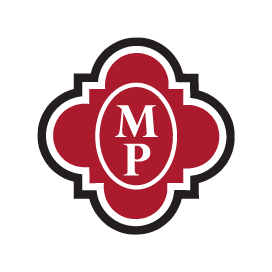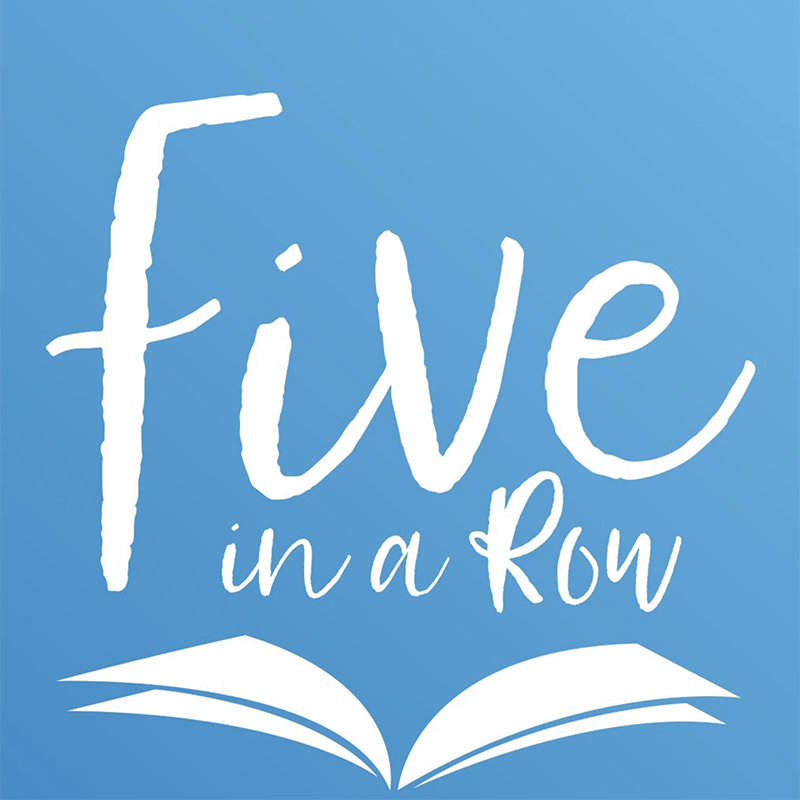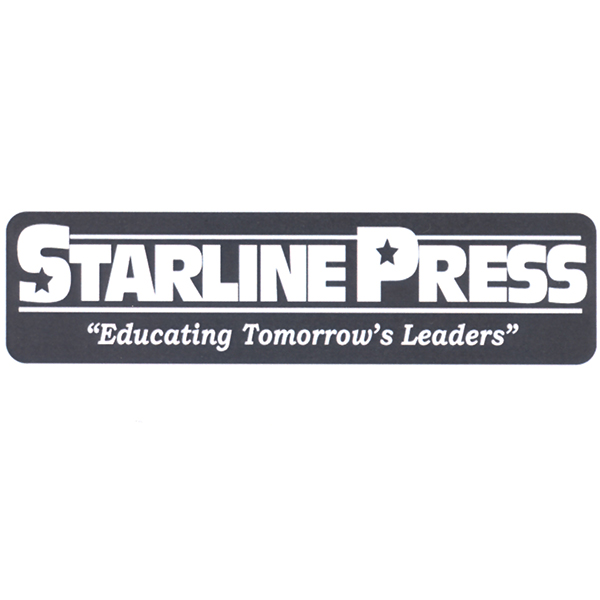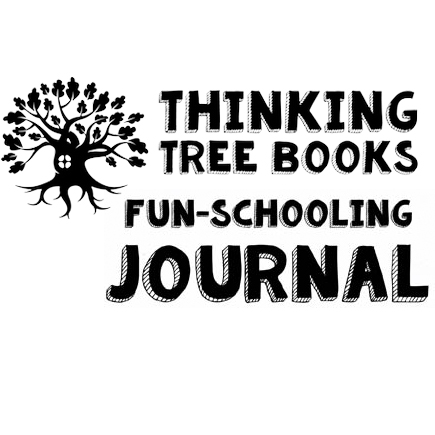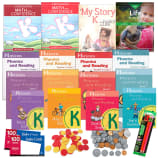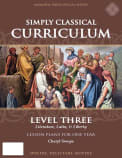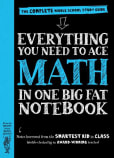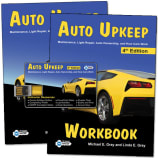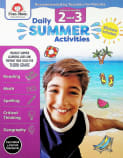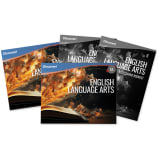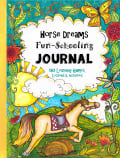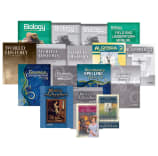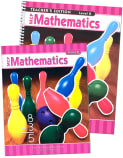- Full Curriculum - All Subjects
- Rainbow Curriculum Starter Packages
- Abeka Curriculum Kits
- BJU Press Curriculum
- Alpha Omega (AOP) Curriculum
- Christian Liberty Curriculum
- Calvert Curriculum for PK-5
- Discover! Curriculum
- Homeschool Complete
- Memoria Press Classical Curriculum
- Savvas Homeschool Bundles
- Paradigm Accelerated Curriculum
- Starline Press Curriculum
- Well-Trained Mind Classical Curriculum
- Central VCS Curriculum Packages
- Charity Christian Academy Resources
- Charis Classical Academy Resources
- Forest Trail Academy Curriculum Packages
- Freedom Project Academy Curriculum Resources
- Horizon Charter School
- Shell Education ELA/Math Bundles
- Well Planned Lesson Plans
- My Father's World
- Rainbow Curriculum Starter Packages
- Curriculum Finder By Subject And Grade
- Curriculum Finder
- Early Learning Curriculum Finder
- Language Arts Curriculum Finder
- Phonics Curriculum Finder
- Reading Curriculum Finder
- English Curriculum Finder
- Spelling/Vocabulary Curriculum Finder
- Handwriting Curriculum Finder
- Math Curriculum Finder
- Science Curriculum Finder
- Logic Curriculum Finder
- Bible Curriculum Finder
- History Curriculum Finder
- Foreign Language Curriculum Finder
- Art Curriculum Finder
- Music Curriculum Finder
- Curriculum Finder
- Complete Workbooks - By Grade
- 365 FUN Days (Old Farmer's Almanac)
- ____Grade at Home (Princeton Review)
- Barron's Common Core Success English / LA
- Big ____ Workbooks
- Brain Quest Revised Edition
- Brain Quest Workbooks
- Complete Book of Grade ______
- Complete Curriculum Success
- Comprehensive Curriculum of Basic Skills
- Conquering _____ Grade
- Daily Fundamentals
- Dr. Seuss Workbooks
- Everything and More Everything Workbooks
- Flashkids Complete Curriculum
- Hands-On STEAM Learning Fun Workbooks
- Kumon Ace the Grade
- Mastering Basic Skills
- Mastering Skills Series
- School Zone Scholar Workbooks
- Spectrum Complete Learning
- Smart Practice Workbooks
- Spectrum Common Core Language Arts and Math
- 365 FUN Days (Old Farmer's Almanac)
- Workbook Series - By Subject
- Enrichment Curriculum & Supplements
- Living Streams Culture & Craft Enrichment Curriculum
- Topical Enrichment Packages
- Fun Schooling with Thinking Tree Journals
- Dyslexia Games from The Thinking Tree
- Uncle Eric Books by Richard Maybury
- Everything You Need to Ace Subjects in One Big Fat Notebook
- How to Survive Middle School
- Super Simple (Smithsonian)
- For Kids Activity Book Series (Chicago Review Press)
- Reader Rabbit Personalized Cross-Curricular CD-ROMs
- Reader Rabbit Cross-Curricular CD-ROMs
- Game & Quiz Supplements
- Classical Conversations Curriculum Resources
- HandMoto® Dry Erase Learning Board and Activity Packs
- Knowledge Box Lapbooks / Lapbook Kits
- Never-Bored Kid Books
- Quick Flip Booklets
- SwitchBoard
- Usborne Look Inside Board Books
- Interactive Notebooks: Seasonal
- Living Streams Culture & Craft Enrichment Curriculum
- Practice Workbooks
- Social Emotional Health Instructional Resources
- Social Emotional Conversation Cards
- 180 Days of Social-Emotional Learning
- Change Your Mindset
- Learning to Get Along
- Heart and Mind Activities for Today's Kids
- Power to Choose!
- Social Emotional Learning Workbooks Teacher Created Resources
- Social Skills Activities for Today's Kids
- Training Aliens
- Social Emotional Learning Games and Activities
- Social Emotional Conversation Cards
- Summer Learning
- Rainbow's Summer Fun Packs
- Highlights Summer Big Fun Workbooks
- Daily Summer Activities
- Summer Brain Quest
- Summer Bridge Activities
- Summer Connect
- Summer Review & Prep Series
- Vacation Stations
- Summer Blast Workbooks
- Summer Books
- Summertime Learning
- FlashKids Summer Study Series
- Learn-at-Home Summer Bundles
- Sylvan Summer Smart Workbooks
- Summer Bridge Backpacks
- Weekly Reader: Summer Express
- Rainbow's Summer Fun Packs
- Unit Studies / Thematic Studies
- Electives
- New Products - Curriculum
- Curriculum Clearance Sale Items !!
- Not Yet Categorized Curriculum Products
Complete Homeschool Curriculum
Whether choosing the same publisher for all subjects or picking and choosing from the options, find the best options for your family from our extensive list of programs. We offer complete curriculum packages by grade, Christian or Secular, by publisher and more. You'll find supplements, unit studies, and workbooks from additional practice to summer fun to keep their minds engaged year-round. And if you need some inspiration, think of the FAMILY Way factors to choosing curriculum.
Shop Curriculum by Grade
Review our helpful Curriculum Comparison Charts, Handouts, and Worksheets!
Featured Homeschool Curriculum Products
Complete Curriculum by Topic
These icons are designed to help you quickly understand and learn important information about our products.
Teaching Method
Traditional
Teacher-centered curriculum commonly used in classrooms that may include a text, teacher manual, tests, etc.
Charlotte Mason
A methodology based on the work of a 19th century educator who maintained that children learn best from literature (Living Books), not textbooks.
Classical
A methodology based on the Latin Trivium (three stages of learning), including the grammar stage (memorization and facts), logic stage (critical thinking), and rhetoric stage (developing/defending ideas).
Unit Study
A thematic or topical approach centered around one topic that integrates multiple subject areas.
Montessori (Discovery)
A methodology based on the work of a 20th century educator that emphasizes student and sensory-driven discovery learning and real-life applications.
Other
Other methodologies
Religious Content
Secular
Contains content contrary to common Christian beliefs (i.e. evolution).
Neutral
Avoids religious or theoretical topics or presents multiple viewpoints without preference.
Christian/Religious
Faith-based or including instructional religious content.
Learning Modality
Auditory
Learns through listening, talking out loud or reading out loud.
Visual
Learns through seeing, prefers written instructions and visual materials.
Kinesthetic/Tactile (Hands-On)
Learns through moving, doing and touching.
Multi-Sensory
Curriculum that employ a variety of activities/components.
Presentation
Sequential
Curriculum progresses through well-defined learning objectives. Emphasizes mastery before moving to the next topic.
Spiral
Topics and concepts are repeated from level to level, adding more depth at each pass and connecting with review.
Conceptual/Topical
Focus is on the “why,” often with a unifying concept as well as specific skills; coverage may be broader.
Teacher Involvement
Low Teacher Involvement
Student-led materials; parent acts as a facilitator.
Medium Teacher Involvement
A mix of teacher-led time and independent student work.
High Teacher Involvement
Teacher-led lessons; may utilize discussions, hands-on activities and working together.
Additional Materials Required
No other materials needed
Everything you need is included.
Other Materials Required
There are additional required resources that are a separate purchase.
Other Materials Optional
There are additional resources mentioned or recommended but are not absolutely necessary.
Consumable
Consumable
Designed to be written in; not reusable.
Non-Consumable
Not designed to be written in; reusable.




